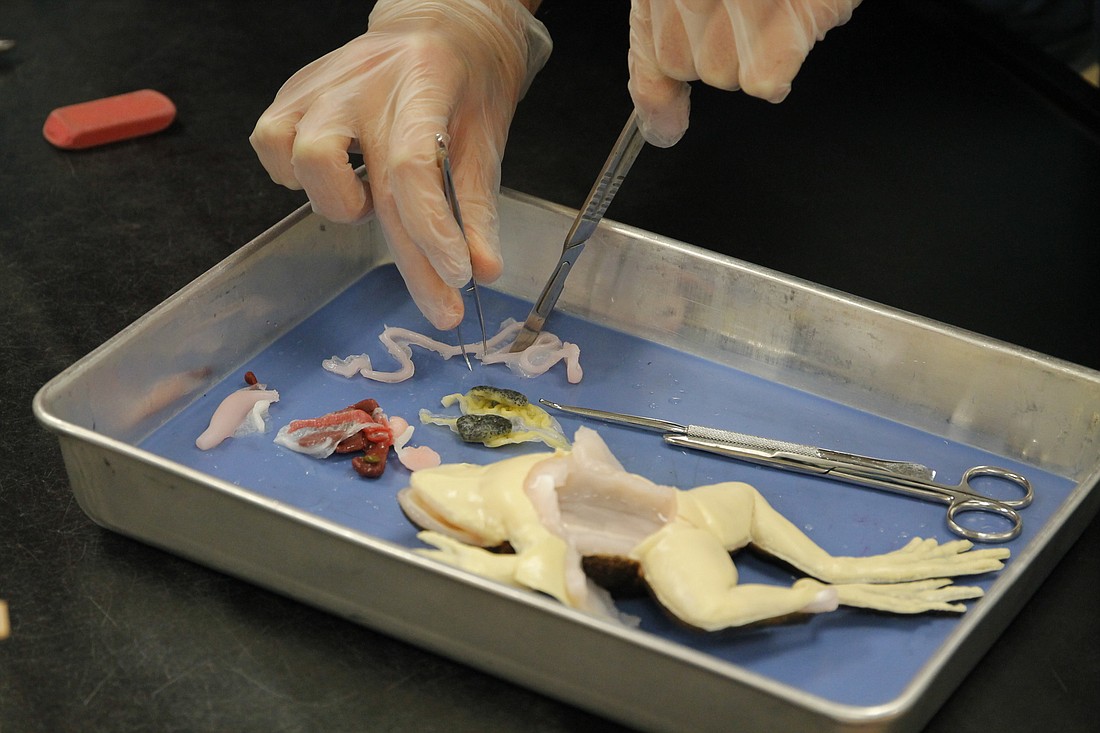- April 3, 2025
-
-
Loading

Squeamish biology students, or those who just don’t want an animal killed for the sake of their education, can now dissect synthetic frogs provided by SynDaver, the Tampa-based biomedical firm that holds 15 patents and is preparing for an IPO.
The SynDaver Synthetic Frog made its debut at J.W. Mitchell High School in New Port Richey last month. It’s the first school in the world to adopt the new technology, known as SynFrog, according to a news release.
SynDaver Founder and CEO Christopher Sakezles tells Coffee Talk that the Pasco County School District plans to buy the frogs, which cost $150 apiece, for all its schools after placing an initial order of 100. “They are going entirely animal-free based on the success of this event,” he says, referring to the November rollout at J.W. Mitchell High School.
Like the company’s lifelike synthetic humans, dogs and pigs — which are used in many medical and veterinary training programs — the SynFrog features a synthetic skeleton, synthetic muscles along with highly realistic synthetic skin and organs. It even includes a reproductive system with eggs.
SynDaver, with some 100 employees, was able to develop the SynFrog thanks to funding from People for the Ethical Treatment of Animals, whose vice president, Shalin Gala, calls the product “revolutionary.”
In addition to saving frogs, the SynFrog is also safer for students and teachers, Sakezles says, because it’s not pumped full of carcinogenic chemicals like a preserved organic frog corpse would be. It’s also reusable: Schools can return dissected SynFrogs to SynDaver for refurbishment.
Sakezles says the product represents a logical progression for the company as it gears up for an IPO in late 2020 or early 2021. “Secondary education is a big next step for us,” he says. “It’s a very large market.”
SynDaver’s strategy, Sakezles says, has been to start with the top, most advanced product line — synthetic human cadavers for medical and surgical training — and then broaden its scope, branching out into product categories with more mass appeal. “We’re developing one market at a time,” Sakezles says. “The business plan stretches out 30 years.”